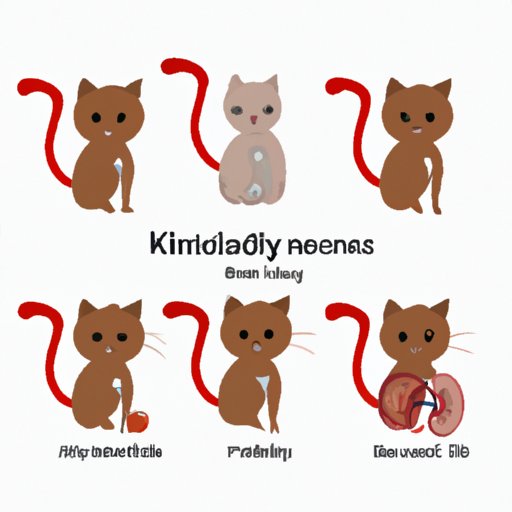
Introduction
Kidney disease is a serious condition that can impact a cat’s quality of life. According to recent studies, it is estimated that 30% of cats over the age of 10 years suffer from kidney disease. This makes it vital for cat owners to understand the main causes of the disease and how to prevent it.
The Top Causes of Kidney Disease in Cats: A Comprehensive Guide
There are several reasons why cats develop kidney disease. These include:
Protect Your Cat’s Kidneys: Understanding the Main Causes of Kidney Disease in Cats
- Age: As cats grow older, their kidneys start to lose their function. This makes them prone to developing kidney disease.
- Dehydration: When cats don’t drink enough water, their kidneys cannot filter out toxins, leading to the development of kidney disease.
- Infections: Infections, especially urinary tract infections, can lead to kidney disease if left untreated. This is because the bacteria can spread to the kidneys and cause damage.
- Genetics: Some breeds are more prone to developing kidney disease than others. These include Persians, Siamese, and Abyssinians.
- Toxins: Exposure to certain toxins such as antifreeze, pesticides and some medications can damage a cat’s kidneys leading to kidney disease.
It is important to note that in most cases, kidney disease doesn’t develop from a single cause but rather a combination of causes.
Avoiding Kidney Disease in Cats: What Pet Owners Need to Know About the Causes
Pet owners can take steps to prevent kidney disease in their cats. These include:
- Maintaining a healthy weight: Obesity can increase the risk of developing kidney disease. Keeping your cat at a healthy weight can help decrease this risk.
- Providing plenty of fresh water: Encourage your cat to drink water by providing fresh water every day.
- Feeding a healthy diet: Feeding your cat a balanced diet that is high in water content and low in phosphorous can help prevent kidney disease.
- Regular vet check-ups: Regular check-ups with your veterinarian can help identify early warning signs of kidney disease and prevent complications.
- Avoiding toxins: Keep your cat away from harmful toxins such as pesticides, antifreeze, and medications that are toxic to cats.
Understanding the Link Between Nutrition and Kidney Disease in Cats
Nutrition plays a critical role in preventing kidney disease in cats. A cat’s diet should contain a balanced ratio of proteins, carbohydrates, and fats, with low levels of phosphorus. High levels of phosphorus can cause damage to a cat’s kidneys and make them more susceptible to developing kidney disease. Pet owners can choose foods that are specifically formulated for cats that are at risk of developing kidney disease. Some recommended foods include:
- Hill’s Prescription Diet k/d Kidney Care
- Purina Pro Plan Veterinary Diets NF Kidney Function
- Royal Canin Renal Support S
- Blue Buffalo Natural Veterinary Diet KS Kidney Support
Preventing Kidney Disease in Cats: Identifying the Causes and Early Warning Signs
Early detection of kidney disease is key to preventing further complications. Some early warning signs of kidney disease in cats include:
- Increased thirst and urination
- Decreased appetite
- Lethargy
- Vomiting
- Weight loss
- Bad breath
If you notice any of these signs, schedule an appointment with your veterinarian immediately.
Conclusion
Kidney disease in cats can be prevented by taking simple steps like providing fresh water, feeding a healthy diet, and regular check-ups with a veterinarian. Understanding the main causes and early warning signs of the disease can help pet owners protect their cats’ kidney health. With the proper care, cats can live a long and healthy life without developing kidney disease.




